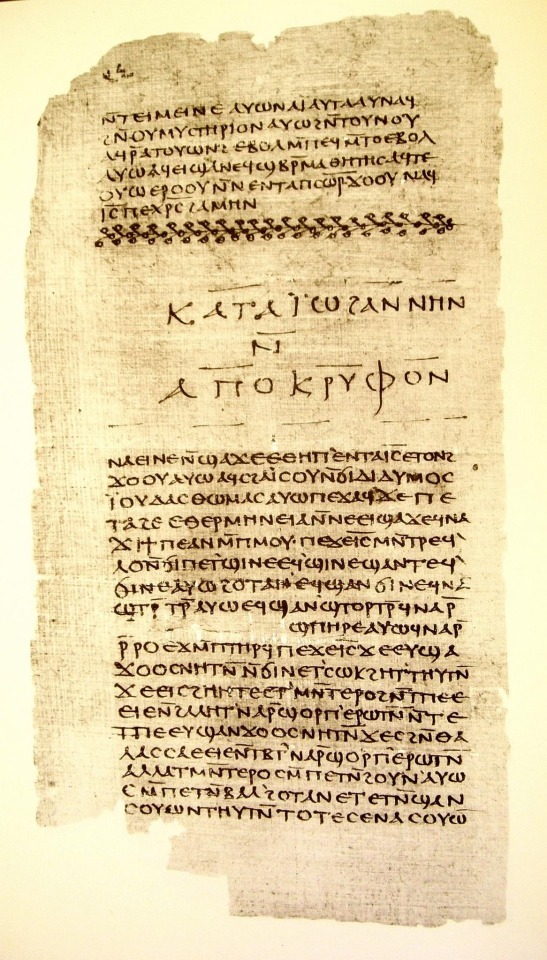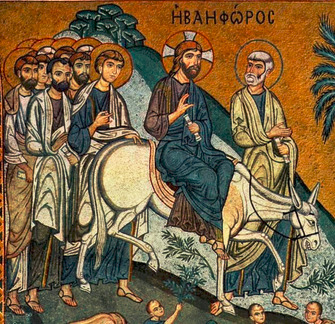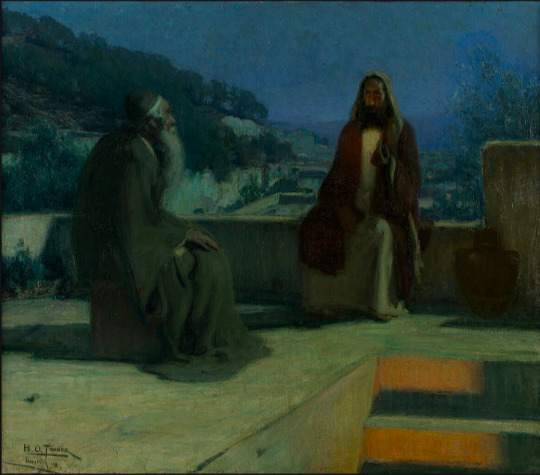#the gospel of the kingdom
Text

#christian blog#jesus#bible reading#christian doctrine#bible scripture#biblical#glorytogod#bible#faith in jesus#bible study#biblestudy#bible verse#bible devotions#bible prophecy#bibledaily#bibleposting#bible quote#bibleversoftheday#biblical art#christian bible#original biblical studies#biblical studies#biblical scripture#scripture#holy bible#holy spirit#share the gospel#spiritual warfare#spirituality#God's kingdom
171 notes
·
View notes
Text

Mark 1:15 (MEV) -
saying, “The time is fulfilled, and the kingdom of God is at hand. Repent and believe the gospel.”
80 notes
·
View notes
Text
Rachel Held Evans: What is the kingdom of heaven?
When Jesus himself talks about the good news, he frames it primarily in terms of “the kingdom of God." … As N. T. Wright and other New Testament scholars have shown, it’s important to understand that kingdom terminology refers not to some faraway paradise filled with disembodied souls, but rather to the will and reign of God, unleashed into the world through the life, death, and resurrection of Jesus.
"God’s kingdom in the preaching of Jesus,” explained Wright, “refers not to postmortem destiny, not to our escape from this world into another one, but God’s sovereign rule coming ‘on earth as it is in heaven.’ . . . Heaven, in the Bible, is not a future destiny but the other, hidden dimension of ordinary life—God’s dimension, if you like. God made heaven and earth; at the last he will remake both and join them together forever.” (Wright, Surprised by Hope: Rethinking Heaven, the Resurrection, and the Mission of the Church, 19)
What this means precisely remains something of a mystery, for Jesus’ favorite way to speak about the kingdom is through story, riddle, and metaphor.
The kingdom, Jesus taught, is right here—present yet hidden, immanent yet transcendent. It is at hand—among us and beyond us, now and not-yet. The kingdom of heaven, he said, belongs to the meek, the peacemakers, the merciful, and those who hunger and thirst for God. It advances not through power and might, but through missions of mercy, kindness, and humility. In this kingdom, many who are last will be first and many who are first will be last. The rich don’t usually get it, Jesus said, but children always do. This is a kingdom whose savior arrives not on a warhorse, but a donkey, not through triumph and conquest, but through death and resurrection. This kingdom is the only kingdom that will last.
—Rachel Held Evans, Inspired, p. 153-154
#rachel held evans#kingdom of god#kingdom of heaven#heaven#jesus#jesus of nazareth#jesus christ#christianity#christian#progressive christian#progressive christianity#episcopalian#nt wright#the bible#theology#lgbtq christian#lgbt christian#queer christian#the gospel
70 notes
·
View notes
Text


+
His disciples said to Him, "When will the Kingdom come?"
Jesus said, "It will not come by waiting for it. It will not be a matter of saying 'Here it is' or 'There it is.' Rather, the Kingdom of the Father is spread out upon the earth, and men do not see it."
—Gospel of Thomas v 113. Above: the original text (c 60-100 CE). The text bears parallels to Luke and other synoptic gospels, yet it is far earlier than any surviving synoptic text.
[Robert Scott Horton]
12 notes
·
View notes
Text

Born Again
Jesus answered and said to him, “Truly, truly, I say to you, unless one is born again he cannot see the kingdom of God.”
— John 3:3 | Legacy Standard Bible (LSB)
Legacy Standard Bible Copyright ©2021 by The Lockman Foundation. All rights reserved. Managed in partnership with Three Sixteen Publishing Inc.
Cross References: Ezekiel 36:26; Matthew 19:24; Matthew 21:31; Mark 9:47; Mark 10:14; John 3:4-5
#God#Jesus#kingdom#truth#baptism#birth#John 3:3#Gospel of John#New Testament#LSB#Legacy Standard Bible#Three Sixteen Publishing#The Lockman Foundation
13 notes
·
View notes
Text


Left: detail of an icon of Jesus's Palm Sunday Procession.
Right: detail of a 1791 replication of a bas relief of the Triumph of Titus
[T]his demonstration harbored a dangerous message that would lead to Jesus's public execution by the end of the week. The way Jesus entered Jerusalem at the beginning of Passover week was a strategically organized demonstration.
Jesus's entire ministry was headed toward Jerusalem. Every time he had to leave a large crowd of sick people begging to be healed, it was because his journey was aimed toward Jerusalem. Word of Jesus's message had already spread to Jews in Jerusalem, and they were prepared to participate in these planned demonstrations. Mark 11 tells us that when Jesus and his disciples were approaching Jerusalem, he told two of his disciples, "Go into the village ahead of you, and immediately as you enter it, you will find tied there a colt that has never been ridden; untie it and bring it. If anyone says to you, 'Why are you doing this?' just say this, 'The Lord needs it and will send it back here immediately.'"
We don't know who was assigned to tie up the colt at the entrance, but taking the colt communicated to the crowds waiting in Jerusalem that Jesus was about to arrive. From the Mount of Olives, Jesus entered through the east entrance of Jerusalem on the colt while a crowd surrounded him, preparing the road for Jesus by spreading their cloaks and "leafy branches that they had cut in the fields" on the ground. And they shouted, "Hosanna! Blessed is the one who comes in the name of the Lord! Blessed is the coming kingdom of our ancestor David! Hosanna in the highest heaven!"
This deliberate sequence of actions was a symbolic reenactment of the prophecy of Zechariah. Zechariah 9:9 says, "Rejoice greatly, O daughter Zion! Shout aloud, O daughter Jerusalem! Lo, your king comes to you; triumphant and victorious is he, humble and riding on a donkey, a colt, the foal of a donkey." Matthew even directly quotes the verse in his account.
This was a purposefully timed demonstration that would also remind people of the next verse in Zechariah 9: "He will cut off the chariot from Ephraim and the war-horse from Jerusalem; and the battle bow shall be cut off, and he shall command peace to the nations; his dominion shall be from sea to sea, and from the River to the ends of the earth."
Although the gospel accounts do not report this detail, we know that the Roman governor Pontius Pilate arrived in Jerusalem at the beginning of the Passover Week as well. First-century Jewish historian Josephus wrote that during every Passover, Pontius Pilate and a legion of Roman soldiers spent the week in Jerusalem because of an increased chance of an uprising as Jews celebrated the event of the Exodus. The Romans wanted to make sure nobody got any dangerous ideas as they recounted God's attack on Egypt and the liberation of the Israelites.
So as Jesus humbly entered Jerusalem from the east on a donkey, surrounded by a crowd of peasants and leafy branches, Pontius Pilate was likely entering Jerusalem from the west on a chariot led by a war horse, surrounded by a legion of Roman soldiers with armor and deadly weaponry. In their book on Jesus's last week in Jerusalem, John Dominic Crossan and Marcus Borg point out, "What we often call Jesus's triumphal entry was actually an anti-imperial, anti-triumphal one, a deliberate lampoon of the conquering emperor entering a city on horseback through gates open in abject submission.
The symbolism is packed with meaning for the lives of those in the crowd surrounding Jesus. This demonstration exposed two warring kingdoms: the kingdom of Rome, with the power and weapons on their side, and the kingdom of God with the people on their side, desperate for liberation.
Damon Garcia (The God Who Riots: Taking Back the Radical Jesus, pages 146-148). Bolded emphases added.
#Christianity#Jesus Christ#Kingdom of God#The World#Palm Sunday#peace#war#imperialism#Pontius Pilate#symbolism#Gospel of Mark#Book of Zechariah
7 notes
·
View notes
Text
𝐀𝐮𝐠𝐮𝐬𝐭 𝟐𝟑, 𝟐𝟎𝟐𝟑
Wednesday of the Twentieth Week in Ordinary Time
Gospel Mt 20:1-16
Jesus told his disciples this parable:
"The Kingdom of heaven is like a landowner
who went out at dawn to hire laborers for his vineyard.
After agreeing with them for the usual daily wage,
he sent them into his vineyard.
Going out about nine o'clock,
he saw others standing idle in the marketplace,
and he said to them, 'You too go into my vineyard,
and I will give you what is just.'
So they went off.
And he went out again around noon,
and around three o'clock, and did likewise.
Going out about five o'clock,
he found others standing around, and said to them,
'Why do you stand here idle all day?'
They answered, 'Because no one has hired us.'
He said to them, 'You too go into my vineyard.'
When it was evening the owner of the vineyard said to his foreman,
'Summon the laborers and give them their pay,
beginning with the last and ending with the first.'
When those who had started about five o'clock came,
each received the usual daily wage.
So when the first came, they thought that they would receive more,
but each of them also got the usual wage.
And on receiving it they grumbled against the landowner, saying,
'These last ones worked only one hour,
and you have made them equal to us,
who bore the day's burden and the heat.'
He said to one of them in reply,
'My friend, I am not cheating you.
Did you not agree with me for the usual daily wage?
Take what is yours and go.
What if I wish to give this last one the same as you?
Or am I not free to do as I wish with my own money?
Are you envious because I am generous?'
Thus, the last will be first, and the first will be last."

#jesus#catholic#my remnant army#jesus christ#virgin mary#faithoverfear#saints#jesusisgod#endtimes#artwork#Jesus is coming#Gospel#word of God#Bible#biblevisuals#bibleversoftheday#kingdom of heaven
14 notes
·
View notes
Text

"Yeah, God is great in 100 %!"
~ Sam
#child of paradise#childhood dreams#gospel#god's children#god's love#jesus loves us#kingdom of heaven#god is great#praisethelord
9 notes
·
View notes
Text
“One of the most fanciful fictions of the religious right is the notion that Jesus is the architect and founder of ‘traditional family values.’ In fact, much of the Gospel traditions is anti-family looking to alternative structures to the patriarchal household.
“In 8.19-20, Jesus’ mother and biological brothers cannot reach him, but he is told of their presence. He responds, ‘My mother and brothers are those who hear the word of God and do it’ (8.21). …All obligations to parents, wives and families are abandoned for this liminal gender space of God’s reign. Traditional family values are emphatically rejected.
“Jesus disrupted traditional households: he announces, ‘Whoever comes to me and does not hate father and mother, wife and children, brothers and sisters, yes, and even life itself, cannot be my disciple’ (14.26). Jesus created a new, alternative household of God: ‘Families in God’s reign are reconstituted, a non-biological household of equal disciples. Jesus queered the Jewish household to create families of choice’ (Goss 1997:8).
“Jesus’ queer household of God gave men and women a new freedom by subverting hierarchy and allegiance to the patriarchal household. The patriarchal household was the model for state authority, for it represented masculine hegemony over women, children, slaves, lesser males and workers. God’s reign belongs to children (18.16), and they model what it means to be a disciple (18.17). Political hierarchies are turned upside down in the reign of God...”
Robert E. Goss, “Luke” in The Queer Bible Commentary (2006), p. 537.
#family values#reading and studying the bible#the queer bible commentary#queer theology#luke#the gospel of luke#family#jesus#kingdom come#log#readings
69 notes
·
View notes
Text

#jesusistheway#jesusiseverything#bibletruth#bookoftheday#author#jesuscristo#jesussaves#jesus is coming#jesus#jesus christ#god's truth#grace#gospel#graphic design#christian living#christian blog#prayer#devotional#bible reading#bible study#christ is king#kingdom of heaven#life quote#bible verse#biblestudy#biblical#bible#bibleverse#count your blessings#goodnews
2 notes
·
View notes
Text
2023 OCTOBER 11 Wednesday
"Father, hallowed be your name, your kingdom come. Give us each day our daily bread and forgive us our sins for we ourselves forgive everyone in debt to us, and do not subject us to the final test."
~ Luke 11:2-4
#bible#scripture#verse#gospel#apostle#saint#Luke#God#Lord#Jesus#Christ#our father#prayer#hallowed#name#kingdom#daily bread#forgive#debt#final#test
5 notes
·
View notes
Text
John 7:40-52
Nicodemus challenged his fellow pharisees.

Nicodemus Visiting Jesus,
Painting by Henry Ossawa Tanner (1859-1957),
Painted in 1899,
Oil on canvas
© Pennsylvania Academy of Fine Arts
Gospel Reading
Several people who had been listening to Jesus said, ‘Surely he must be the prophet’, and some said, ‘He is the Christ’, but others said, ‘Would the Christ be from Galilee? Does not scripture say that the Christ must be descended from David and come from the town of Bethlehem?’ So the people could not agree about him. Some would have liked to arrest him, but no one actually laid hands on him.
The police went back to the chief priests and Pharisees who said to them, ‘Why haven’t you brought him?’ The police replied, ‘There has never been anybody who has spoken like him.’ ‘So’ the Pharisees answered ‘you have been led astray as well? Have any of the authorities believed in him? Any of the Pharisees? This rabble knows nothing about the Law – they are damned.’ One of them, Nicodemus – the same man who had come to Jesus earlier – said to them, ‘But surely the Law does not allow us to pass judgement on a man without giving him a hearing and discovering what he is about?’ To this they answered, ‘Are you a Galilean too? Go into the matter, and see for yourself: prophets do not come out of Galilee.’
Reflection on the painting
In today's Gospel reading, we encounter Nicodemus, marking his second of three appearances in the Gospel of John. Initially introduced as a curious seeker who approaches Jesus under the cover of night, Nicodemus is portrayed as intrigued by Jesus yet hesitant to fully embrace his teachings. His journey of faith is subtly woven through John's narrative, culminating in his participation alongside Joseph of Arimathea in ensuring Jesus receives a respectful (indeed, lavish) burial. This progression illustrates Nicodemus's gradual movement towards a deeper understanding and commitment to Jesus. Our reading today is the second (and middle) appearance of Nicodemus. Despite being a Pharisee, he displays remarkable bravery by questioning the outright dismissal of Jesus by his peers, who criticize Jesus based on his origin in Galilee, a region they regard as insignificant compared to the religious hub of Jerusalem. Nicodemus advocates for fairness and due process, arguing that Jesus should not be judged without first being heard. This stance places him at odds with the prevailing opinions of his colleagues, and his challenge is met with scorn, evidenced by their sarcastic comment "Are you from Galilee too?"
Nicodemus's growing relationship with Jesus left him increasingly isolated in the world where he had been so much at home. He actually reminds us that as we grow in our relationship with Jesus, there is often a price to be paid. We may find ourselves a lone voice among our peers. At such times, we know that the Lord is always with us.
Henry Ossawa Tanner painted our canvas in 1899, depicting the first of the three mentions of Nicodemus in John's Gospel (John 3:1-21). The painting was Tanner's entry to the 1899 Paris Salon. We see Nicodemus talking privately to Christ in the evening, a good example of Tanner's nocturnal light paintings. The painting was purchased there for the Wilstadt Collection, Philadelphia, and is now in the Pennsylvania Academy of Fine Arts. The narrative of Nicodemus' meeting with Jesus held significant meaning for Henry Ossawa Tanner's father, Benjamin Tucker Tanner. He was a Bishop in the African Methodist Episcopal Church and had aspirations for his son to join him in the ministry. While Henry's decision to pursue a career as an artist fell short of his father's dream, his talent for painting ultimately produced works that his father could admire and support.
Article by Father Patrick van der Vorst
#christian blog#jesus#bible reading#christian doctrine#bible scripture#biblical#glorytogod#bible#faith in jesus#bible study#modern art#artwork#art history#old art#religious art#bible reflection#art#artists#history#share the gospel#gospel#word of god#kingdom of heaven#christian faith#follow jesus#bible verse#biblical art#spiritual disciplines#spiritual warfare#walk with god
20 notes
·
View notes
Photo

Matthew 24:14 (NKJV) -
And this gospel of the kingdom will be preached in all the world as a witness to all the nations, and then the end will come.
190 notes
·
View notes
Text
The Prayer Protocol
Every world leader has protocols for anyone who wishes to see them. Similarly, many people behave as if God has a similar list of protocols in order to have access to Him. Is that correct? If so, what are our prayer protocols?
Listen to the podcast of this post by clicking on the player below, and you can also subscribe on Apple, Spotify, or Audible.
https://craigtowens.files.wordpress.com/2024/01/the-prayer-protocol.mp3
Every monarch or president on the planet has certain protocols for anyone who interacts with them. There are requirements on how to walk into the room, titles that have to be used, the way you have…

View On WordPress
#Calvary Assembly of God#God&039;s Kingdom#Gospel of John#Gospel of Luke#Gospel of Mark#Gospel of Matthew#Heavenly Father#hypocrites#intimacy#Jesus Christ#prayer#video
4 notes
·
View notes
Quote
This is the purpose of a Gospel ministry, to bring you to repentance, and so to salvation; to baptize you with the baptism of repentance, through faith in Jesus Christ for you crucified, and so bestow on you remission of sins, and all the other spiritual blessings of the kingdom of heaven.
R. Paisley
12 notes
·
View notes
Text

Jesus Blesses the Children
15 They brought unto him also babes, that he should touch them. When his disciples saw that, they rebuked them. 16 But Iesus called them unto him, and said: Suffer children to come unto me, and forbid them not. For unto such, belongeth the kingdom of God. 17 Verily I say unto you: whosoever receiveth not the kingdom of God, as a child: he shall not enter therein.
— Luke 18:15-17 | Tyndale New Testament (TYN)
Tyndale New Testament in Modern Spelling © Faithofgod.net - Alleluya.com. Permission is given freely for all NON-lucre, NON-commercial Scripture distribution endeavors provided that nothing is altered.
Cross References: Matthew 18:3; Matthew 19:13-14; Mark 10:13; Mark 10:15; 1 Corinthians 14:20; 1 Peter 2:2
#Jesus#blessing#children#kingdom of God#Luke 18:15-17#Gospel of Luke#Tyndale New Testament Bible#TYN
7 notes
·
View notes